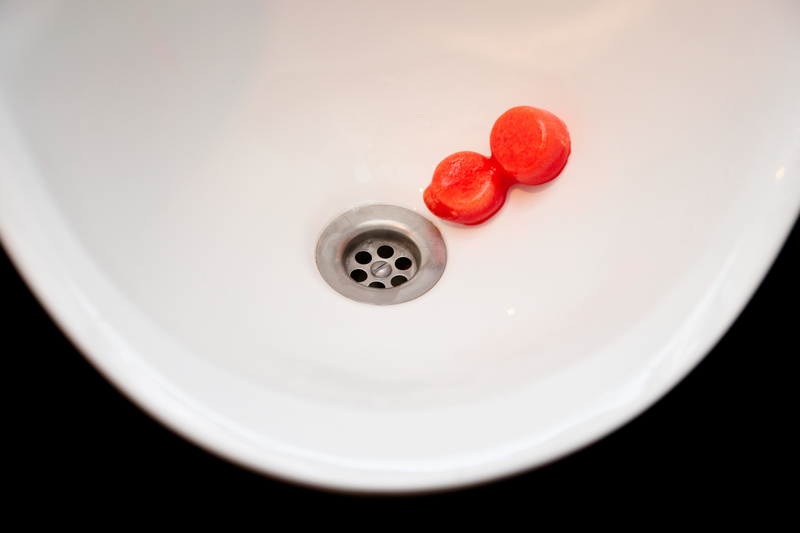Polished Perfection: DIY Tips for Jewellery Cleaning
Posted on 26/08/2025
Polished Perfection: DIY Tips for Jewellery Cleaning
Jewellery holds a special place in our hearts and our wardrobes, a sparkling reflection of our personal style and cherished memories. But with time, even the most precious pieces can lose their brilliance. Fear not, as achieving polished perfection is completely possible with the right DIY jewellery cleaning techniques! Whether you own dazzling diamonds, vintage treasures, or demure pearls, this comprehensive guide offers everything you need to restore your beloved jewellery's shine safely at home.

Why Regular Jewellery Cleaning is Essential
Jewellery, whether made from gold, silver, platinum, or adorned with gemstones, comes in close contact with skin, hair products, lotions, and everyday dirt. Over time, these residues can dull even the most sparkling pieces. Regular cleaning not only restores their shine but also:
- Prevents build-up of grime and bacteria
- Keeps allergies and skin irritations at bay
- Preserves metal and gemstone integrity
- Highlights craftsmanship and details
- Allows for inspections to spot potential damage early
Homemade jewellery cleaners and smart DIY strategies are gentle on your accessories and cost-effective. Let's explore how you can achieve professional-level polish at home!
Understanding Different Jewellery Types
Not all jewellery is created equal, and neither is the cleaning process. Before you begin, it's vital to recognise the specific requirements of your pieces. Here are some quick guidelines:
- Gold and Platinum: Durable metals that tolerate mild soap and water; avoid harsh chemicals.
- Silver: Prone to tarnish; responds well to baking soda and gentle polishing cloths.
- Gemstone Jewellery: Some stones (like diamonds and sapphires) are robust, while others (like opals and pearls) are delicate and porous.
- Costume Jewellery: Often plated, so extra care must be taken to avoid abrasion and exfoliation of the surface.
Pro Tip: Always check for loose stones or broken clasps before and after cleaning. If in doubt, consult a professional jeweller before proceeding with any at-home method.
Essential Supplies for At-Home Jewellery Cleaning
Before embarking on your journey to polished perfection, gather the following simple tools and ingredients:
- Soft, lint-free cloths or microfibre cloths
- Mild dishwashing soap (preferably scent-free)
- Baking soda and white vinegar
- Soft-bristled toothbrush or baby brush
- Small containers or bowls
- Cotton swabs and toothpicks for intricate details
- Clean water for rinsing
Optional Extras:
- Jewellery polishing cloths (impregnated with anti-tarnish agents)
- Ammonia solution (for diamonds only and with extreme caution!)
- Commercial jewellery cleaners (ensure they are suitable for your piece)
Step-By-Step DIY Jewellery Cleaning Methods
1. How to Clean Gold and Platinum Jewellery
Gold and platinum are two of the most popular metals thanks to their beauty and durability. Here's how to maintain their lustre:
- Fill a bowl with warm (not hot) water and add a few drops of mild dish soap.
- Soak your pieces for 15-20 minutes to loosen dirt and oils.
- Gently scrub with a soft toothbrush, paying attention to crevices.
- Rinse thoroughly under running water. Use a strainer to avoid losing small items.
- Pat dry with a microfibre or lint-free cloth. Avoid paper towels as they may scratch.
Repeat once monthly to maintain ultimate shine.
2. Silver Jewellery: Tackling Tarnish
Silver can tarnish over time due to exposure to air and moisture. Here's a safe and effective method for DIY silver jewellery cleaning:
- Line a small bowl with aluminium foil, shiny side up.
- Place your silver pieces on the foil.
- Sprinkle baking soda generously over the jewellery.
- Pour hot (not boiling) water over the items until submerged.
- Watch as the chemical reaction lifts away tarnish naturally!
- After a few minutes, remove, rinse with cool water, and buff with a soft cloth.
Note: Do not use this method for pieces with glued stones, oxidised patterns or antique finishes.
3. Diamond and Gemstone Jewellery
Diamonds and most coloured gemstones (sapphires, rubies, etc.) are rugged enough to withstand simple cleaning, but care should be taken with softer or porous stones:
- Use the gold method outlined above (warm water and mild soap).
- Gently scrub around settings and prongs to dislodge debris using a brush.
- Rinse thoroughly and dry with a microfibre cloth.
Delicate stones like emerald, turquoise, opals, or pearls: Do not soak. Instead, wipe gently with a barely damp cloth and avoid any chemicals, ultrasonic cleaners, or excessive moisture.
4. Pearl Jewellery: Handling with Extreme Care
Pearls and other organic gems require the gentlest cleaning methods:
- Wipe after every wear with a clean, soft cloth to remove body oils and perfume residues.
- For stubborn grime, dip a cloth in a solution of warm water and the tiniest drop of gentle soap. Never submerge pearl strands as damp threads can weaken and decay.
- Lay flat to dry completely before storing.
Tip: Store pearls in a soft pouch away from other harder jewellery to prevent scratching.
DIY Jewellery Cleaning: What Not to Do
- Never use toothpaste - while often recommended, it's abrasive and scrapes metals and gems.
- Avoid harsh chemicals like bleach, chlorine, or household cleaners.
- Be cautious with ultrasonic cleaners; they can loosen gemstones and damage delicate settings.
- Don't use paper towels or tissues as they can scratch softer metals and stones.
- Never soak costume jewellery - adhesives may dissolve, and finishes can flake.
Polishing and Storing Your Clean Jewellery
After cleaning, achieving polished perfection is all about buffing and smart storage:
- Use a jewellery polishing cloth for final shine, especially on silver and gold.
- For intricate designs, cotton swabs can access hard-to-reach areas.
- Allow pieces to dry completely before putting them away to prevent mildew and tarnish.
- Store items separately in a soft-lined box or pouch to avoid scratches and tangled chains.
- Add anti-tarnish strips or silica gel packs in your jewellery box for extra protection.
Pro Tip: Wear your jewellery regularly! With most precious metals, the friction from daily wear helps keep pieces looking bright, while keeping them tucked away may actually hasten tarnish.
Common DIY Jewellery Cleaning Questions
How often should you clean your jewellery?
Fine jewellery (gold, platinum, diamonds) can be gently cleaned once a month at home and professionally inspected once a year. Silver can vary - if exposed to humidity or air pollution, clean whenever tarnish appears.
Is it safe to clean all jewellery at home?
Most basic pieces (without fragile settings or porous stones) are safe for DIY cleaning. Avoid at-home methods if your jewellery is vintage, antique, or has visible damage. When in doubt, always seek a professional cleaning service.
Can you use household items to clean jewellery?
Yes! Baking soda, mild dish soap, white vinegar, and microfibre cloths are effective and safe for most jewellery. Always check for specific care instructions for your gemstone or metal.
DIY Jewellery Cleaning: Green and Safe Alternatives
Eco-conscious owners can make their own green jewellery cleaner by mixing:
- One cup of warm water
- One teaspoon of baking soda
- Few drops of natural liquid dish soap
Soak sturdy jewellery in this solution, rinse, and buff dry--no harsh chemicals needed!
DIY Jewellery Maintenance Tips
- Remove rings and bracelets before cleaning, swimming, or working in the garden.
- Apply perfumes, lotions, and hair sprays before putting on your jewellery--not after.
- Have settings and clasps checked regularly by a professional jeweller.
- Use dedicated jewellery cleaning pads or soft baby toothbrushes for gentle polishing in between deep cleans.

When to Seek Professional Jewellery Cleaning
Despite the wonders of DIY jewellery cleaning, some situations demand a professional touch:
- Heirlooms or antique jewellery (preservation methods may differ)
- Jewellery with visible defects, loose stones, or intricate mechanisms
- Pieces with enamel or delicate inlays
Regular professional check-ups are highly recommended to ensure settings are intact and to receive a deep clean that preserves value and longevity.
Conclusion: Achieve Polished Perfection at Home
Restoring the sparkle and shine of your much-loved jewellery doesn't have to be daunting or expensive. With the right techniques and gentle DIY methods, you can easily keep your pieces looking as brilliant as the day you got them. Remember to tailor your cleaning approach to the specific materials and gemstones in your collection, and when in doubt, consult a professional.
Following these expert-approved tips, your treasured possessions will always look their best--reflecting polished perfection, timelessness, and personal style with every wear!




